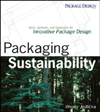Extended Producer Responsibility
Why are Maryland and Illinois recognized as forthcoming EPR states?

The state-by-state march toward enactment of Extended Producer Responsibility (EPR) programs continued in 2023 with the governors of Illinois and Maryland signing bills that mandate EPR needs assessment and feasibility studies.
Only four states – California, Colorado, Maine, and Oregon – have approved comprehensive EPR laws, but 11 more considered such legislation for packaging and paper products in 2023. Lawmakers in Maryland and Illinois introduced bills last year to establish full-scale EPR laws, but both legislatures later amended them to establish advisory councils instead. The councils will recommend recycling needs assessments and evaluate the capacity of their respective states’ recycling systems, while also offering recommendations about the necessity and feasibility of creating permanent statewide EPR programs. Both laws are widely viewed among packaging industry insiders as precursors to permanent EPR programs.
Maryland Gov. Wes Moore signed Senate Bill 222 into law in May 2023. The new law mandates the creation of a statewide advisory council that will conduct a needs assessment for paper and packaging recycling and then send recommendations for an EPR program to Moore by Dec. 1, 2024, for consideration by the legislature in 2025. Notably, the Maryland law also required the designation of a producer responsibility organization (PRO) to assist with the study and future program implementation, and in October, the Maryland Department of the Environment chose Circular Action Alliance (CAA) as the sole PRO for the state advisory council. AMERIPEN has been selected to sit on the advisory council to represent the packaging industry in Maryland.
Shortly thereafter, in late July, Illinois Gov. J.B. Pritzker signed SB 1555, which established a Statewide Recycling Needs Assessment Advisory Council within the Illinois Environmental Protection Agency. The council comprises participants in the recycling system supply chain, including several AMERIPEN members within the packaging industry. It will make recommendations for developing a statewide recycling needs assessment to inform eventual product stewardship legislation for packaging and paper products. Unlike legislation signed into law in Maryland, Illinois’ new law does not require the formation of a PRO.
When considering the four states that have passed EPR, the decisions in Illinois and Maryland to conduct needs assessments point toward a similar outcome – a full, statewide EPR program. The difference is this intermediary legislation prioritizes the completion of the assessment before an EPR program is passed into law, as opposed to including it as part of the program itself.
The choice by Maryland and Illinois leaders to launch needs assessments ahead of potentially establishing full EPR programs at the outset represent prudent preparation and planning. This deliberative approach is slower than direct implementation and could be seen by some as a delay tactic. But at AMERIPEN, we believe it is likely to result in effective, credible, and sustainable outcomes if and when full EPR programs advance in those states. This approach also supports the creation of well-informed, state-specific programs rather than adoption of one-size-fits-all models.
It’s important to note that both states fostered productive discussions and collaboration among industry, environmental groups, and the government with respect to EPR and any future law. This ongoing engagement creates a foundation for a smooth transition to an EPR program once the needs assessments are completed. In addition, the selection of CAA by Maryland’s environmental department could be a step toward harmonizing producer reporting requirements and practices among states, as CAA is now the designated PRO in California and Colorado and is hopeful to be a PRO in Oregon. As EPR and other related laws expand, consistent approaches will be needed to reduce complexity and increase compliance.
Packaging industry professionals know that EPR is a complex policy approach with a wide range of potential challenges. But it’s clear that as Americans become more environmentally conscious and demand sustainability solutions, state policy makers are increasingly looking to EPR as a financial tool for improving recycling infrastucture, collecting more materials for reuse, and reducing waste overall. EPR is likely to appear on the legislative agendas of states that have not yet adopted it, and these states would do well to follow the lead of the majority of those states that have gone before them, including Illinois and Maryland, in terms of the needs assessment process and eventual program designs.
Looking for a reprint of this article?
From high-res PDFs to custom plaques, order your copy today!










